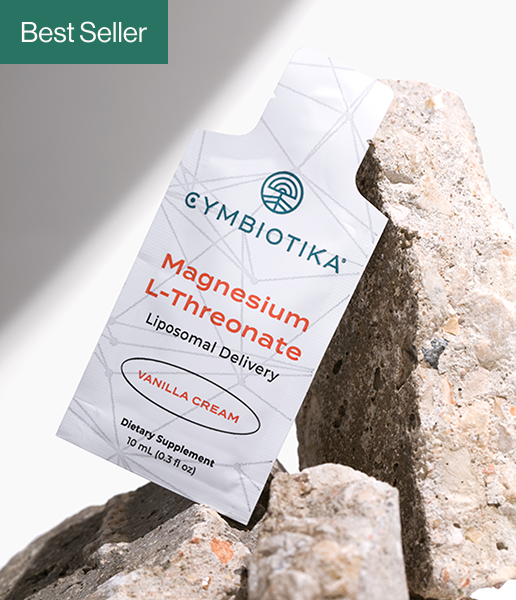
SELENIUM SELENOMETHIONINE
The trace element selenium is an essential micronutrient and powerful antioxidant that supports cognitive function, healthy skin and hair. It neutralizes excess free radicals (environmental toxins, smoking, alcohol use, and stress) and boosts both the immune system and thyroid function by supporting the glutathione and superoxide dismutase systems and protects cells from damage caused by oxidative stress. Selenomethionine is the purest form of selenium – bound to methionine for optimal absorption – No additives or preservatives. Selenium supplementation may also provide protection against mercury, cadmium, and other toxic heavy metals.
“Selenomethionine, also known as sethotope or MSE, belongs to the class of organic compounds known as alpha amino acids. These are amino acids in which the amino group is attached to the carbon atom immediately adjacent to the carboxylate group (alpha carbon). Selenomethionine exists as a solid, soluble (in water), and a moderately acidic compound (based on its pKa). Selenomethionine has been found in human prostate, kidney and pancreas tissues, and has also been detected in multiple biofluids, such as urine and blood. Within the cell, selenomethionine is primarily located in the cytoplasm. Selenomethionine exists in all eukaryotes, ranging from yeast to humans. Selenomethionine participates in a number of enzymatic reactions.(2) Selenomethionine is a selenoamino acid that is the selenium analogue of methionine. It has a role as a plant metabolite. It is a member of selenomethionine and a selenoamino acid.”(2)
“Although all selenium supplements are thought to produce similar effects in the body, selenomethionine is more easily absorbed than non-organic forms of selenium such as selenate. Methionine is an amino acid, meaning it is a building block of protein. When you consume selenomethionine supplements, your body recognizes the selenium as the amino acid methionine and immediately incorporates it into its protein stores. In fact, taking selenomethionine supplements results in plasma selenium stores twice as high as equivalent doses of non-organic selenium supplements such as selenate, according to the Natural Medicines Comprehensive Database. Selenium is an essential nutrient and important trace mineral that the body needs to stay healthy. Your body does not produce selenium on its own. Selenium is important for reproduction, thyroid gland function, DNA production, and protecting the body from damage caused by free radicals and from infection.
Cancer -Studies suggest that people who consume lower amounts of selenium could have an increased risk of developing cancers of the colon and rectum, prostate, lung, bladder, skin, esophagus, and stomach. But whether selenium supplements reduce cancer risk is not clear. More research is needed to understand the effects of selenium from food and dietary supplements on cancer risk.
Cardiovascular- disease-Scientists are studying whether selenium helps reduce the risk of cardiovascular disease. Some studies show that people with lower blood levels of selenium have a higher risk of heart disease, but other studies do not.
Cognition- Blood selenium levels decrease as people age, and scientists are studying whether low selenium levels contribute to a decline in brain function in the elderly. Some studies suggest that people with lower blood selenium levels are more likely to have poorer mental function.
Thyroid disease- The thyroid gland has high amounts of selenium that play an important role in thyroid function. Studies suggest that people—especially women—who have low blood levels of selenium (and iodine) might develop problems with their thyroid. (3)
Selenium forms the main component in seleno-proteins, which are needed by the body to form thyroid hormones and to use them. When selenium levels are low, you will have symptoms, including pain or weakness in muscles, fingernail bed whitening, and discoloration of skin and hair.
Low selenium level affects the thyroid gland, resulting in reduced hormone secretion and the conversion of the hormone to the form required for body functions. The various ways in which the nutrient affects thyroid function include:
The regulation of thyroid hormone production
Boosts conversion of T4 to T3
Protects thyroid gland when oxidative changes affect it
Regulates levels of thyroid hormone in the body
The enzymeseleno-de-iodinase formed with selenium helps control the level of T3 in organs including brain, kidney, and liver. Glutathione peroxidase is another selenium enzyme that helps balance the level of T4 and prevents it from increasing above its normal limit.
Deficiency of Selenium is more in individuals with digestive issues, such as celiac or Crohn’s disease. Inflammation triggered by chronic infection can also cause a deficiency. With low levels of selenium, the body’s resistance to illness is lowered.
A study published in Journal of Clinical Endocrinology and Metabolism in 2002 indicates that even mild deficiency of selenium can lead to autoimmune disease in the thyroid.By supplementing Selenium, the inflammation and damage to thyroid tissue were found to be reduced. This is attributed to the higher level of glutathione peroxidase activity and that of the enzyme thioridoxinereductase. Lower levels of hydrogen peroxide occur with the synthesis of thyroid hormone due to selenium treatment. (4,5)
Selenium and sulforaphane modify the expression of selenoenzymes in the human endothelial cell line EAhy926 and protect cells from oxidative damage (7) Maintaining an optimal selenium level supports normal cell function and differentiation, and healthy heart, connective tissue, eye, liver, and thyroid function.
The trace element selenium is required for human growth and development, and selenium (Se) deficiency can have a serious impact on the human body. Se supplementation in the nutritionally relevant range counteracts mercury toxicity, and dietary supplementation of selenium can replace selenium lost due to intracellular mercury binding, thereby maintaining normal selenium enzyme activity (Ralston et al., 2008).
Recent studies, which have considered the essential role played by Se in various biological function, have suggested that the binding between Hg and Se leads to the withdrawal of Se from Se-protein synthesis; thus, Hg poisoning may, in essence, represent Se depletion (Ralston and Raymond, 2010). In addition, selenoprotein P acts as a major transporter of Hg and as a Se pool in serum (Liu et al., 2018). Se is a crucial component of many antioxidant enzymes, including the glutathione peroxidases , the thioredoxin reductases, the iodothyronine deiodinases, methionine sulfoxide reductase, and the endoplasmic reticulum selenoproteins. These enzymes have been thoroughly functionally characterized (Glaser et al., 2010; Labunskyy et al., 2014; Wrobel et al., 2016).
“Selenium (Se) is an important element required for the optimal functioning of the immune system. Particularly in macrophages, which play a pivotal role in immune regulation, Se acts as a major antioxidant in the form of selenoproteins to mitigate the cytotoxic effects of reactive oxygen species. Here we describe the role of Se as an anti-inflammatory agent and its effect on the macrophage signal transduction pathways elicited by bacterial endotoxin, LPS. Our studies demonstrate that supplementation of Se to macrophages (Se-deficient) leads to a significant decrease in the LPS-induced expression of two important pro-inflammatory genes, cyclooxygenase-2 (COX-2) and tumor necrosis factor-alpha (TNF-alpha) via the inhibition of MAP kinase pathways. Furthermore, Se-deficiency in mice exacerbated the LPS-mediated infiltration of macrophages into the lungs suggesting that Se status is a crucial host factor that regulates inflammation. In summary, our results indicate that Se plays an important role as an anti-inflammatory agent by tightly regulating the expression of pro-inflammatory genes in immune cells.”(12)
FOUND IN THE FOLLOWING PRODUCT(S)
CLINICAL RESEARCH
1. Selenomethionine and Methioninase: Selenium Free Radical Anticancer Activity
2. Selenomethionine | C5H11NO2Se - PubChem
3. Selenium - Consumer
4. Selenium Supplementation in Patients with Autoimmune Thyroiditis Decreases Thyroid Peroxidase Antibodies Concentrations
5. Hashimoto’s thyroiditis and the role of selenium. Current concepts
6. Selenium supplementation improves antioxidant capacity in vitro and in vivo in patients with coronary artery disease The SElenium Therapy in Coronary Artery disease Patients (SETCAP) Study
7. Selenium and sulforaphane modify the expression of selenoenzymes in the human endothelial cell line EAhy926 and protect cells from oxidative damage
8. Effect of selenium-rich Bacillus subtilis against mercury-induced intestinal damage repair and oxidative stress in common carp
9. Selenium, selenoproteins and the thyroid gland: interactions in health and disease
10. Interaction between selenium and methylmercury
11. Selenium and inflammation: underlying anti-inflammatory mechanisms
12. Selenium attenuates pro-inflammatory gene expression in macrophages










